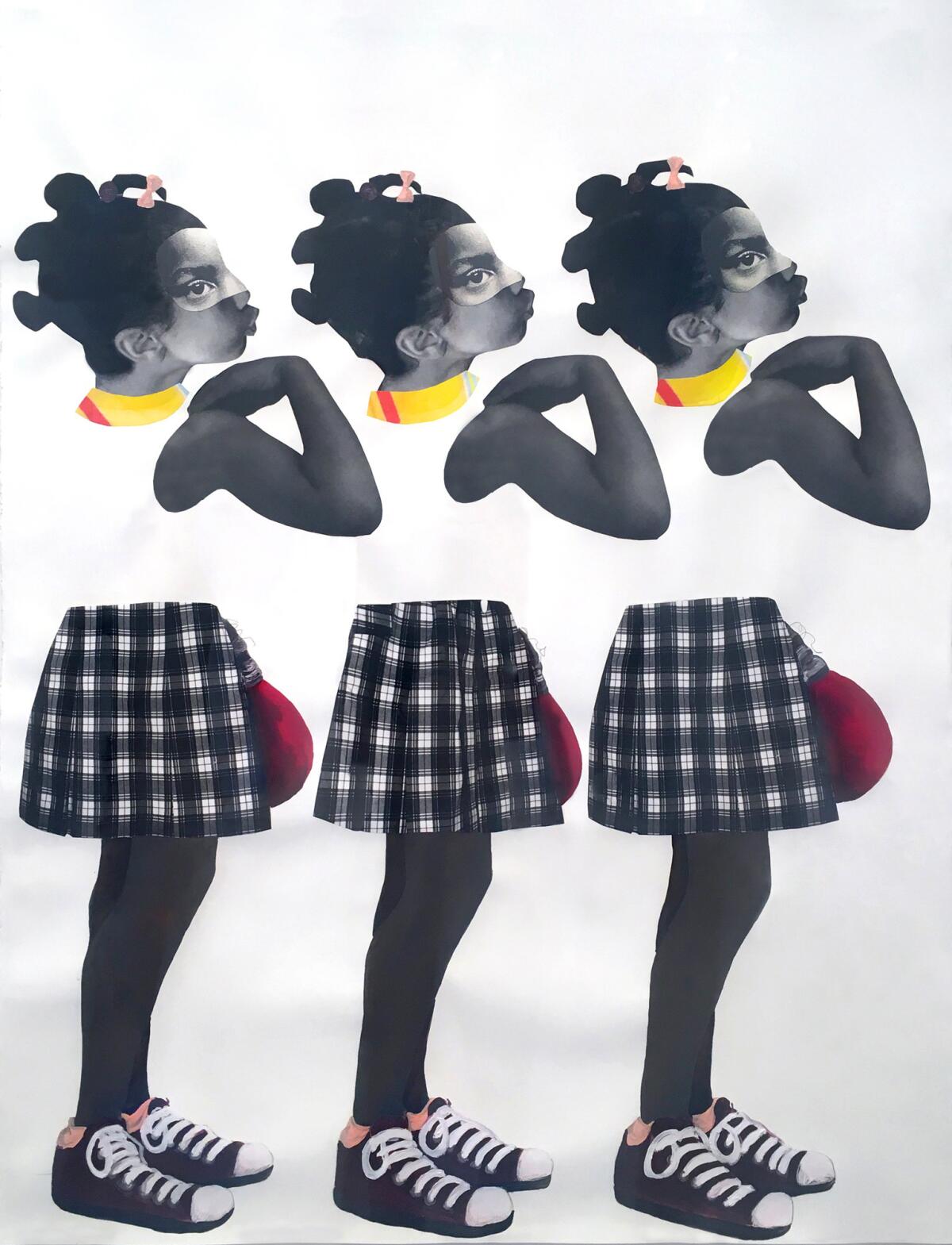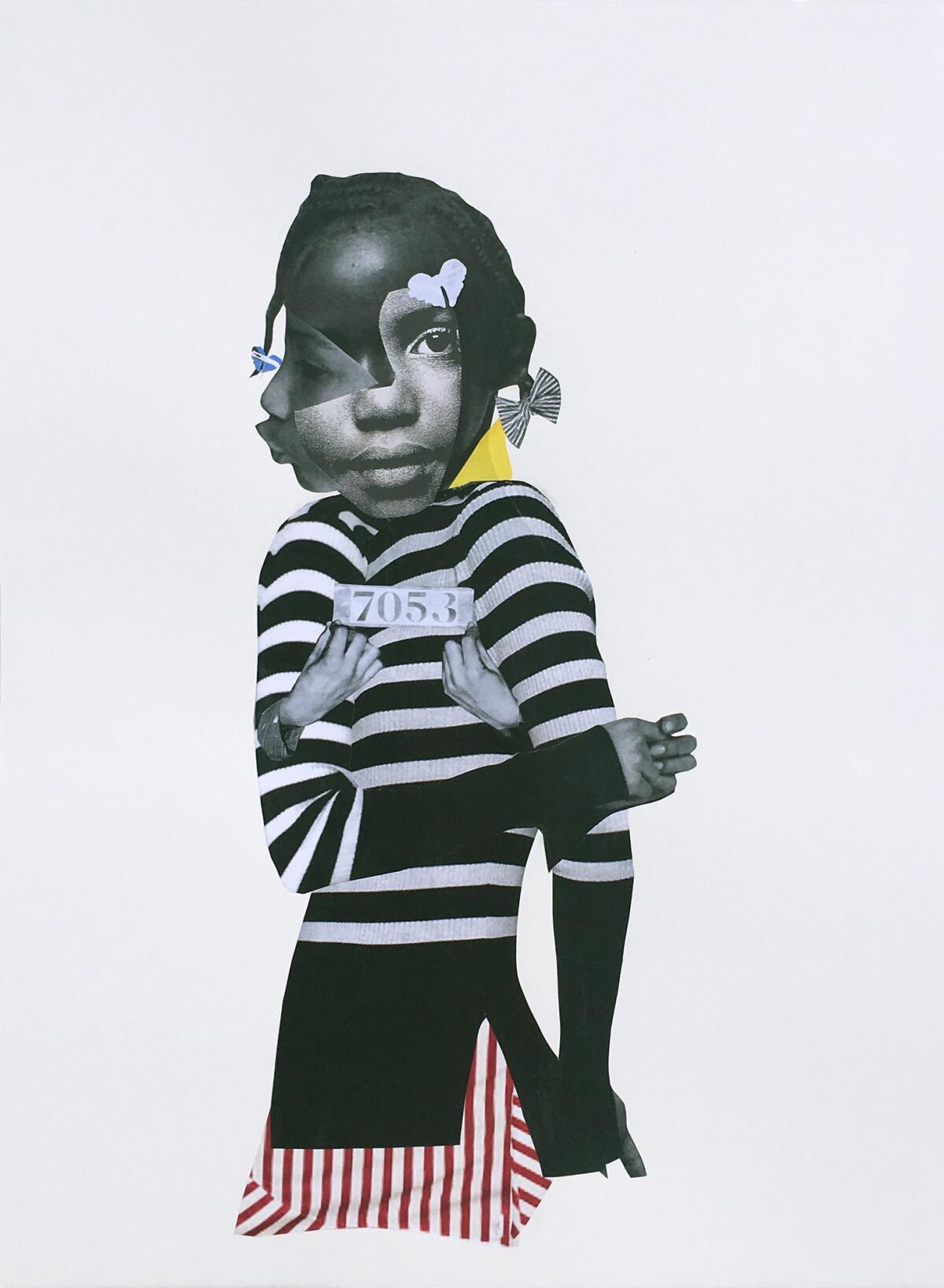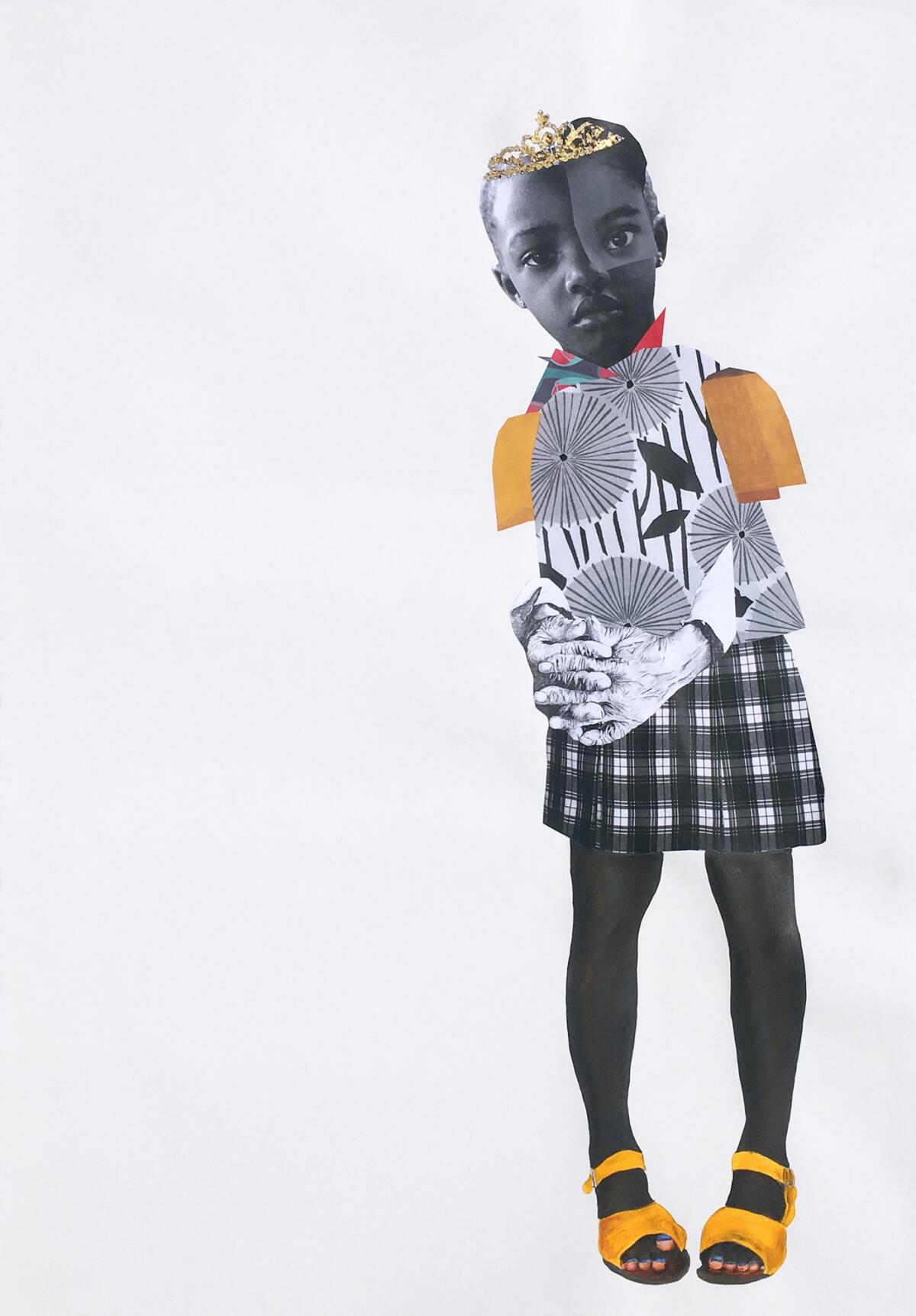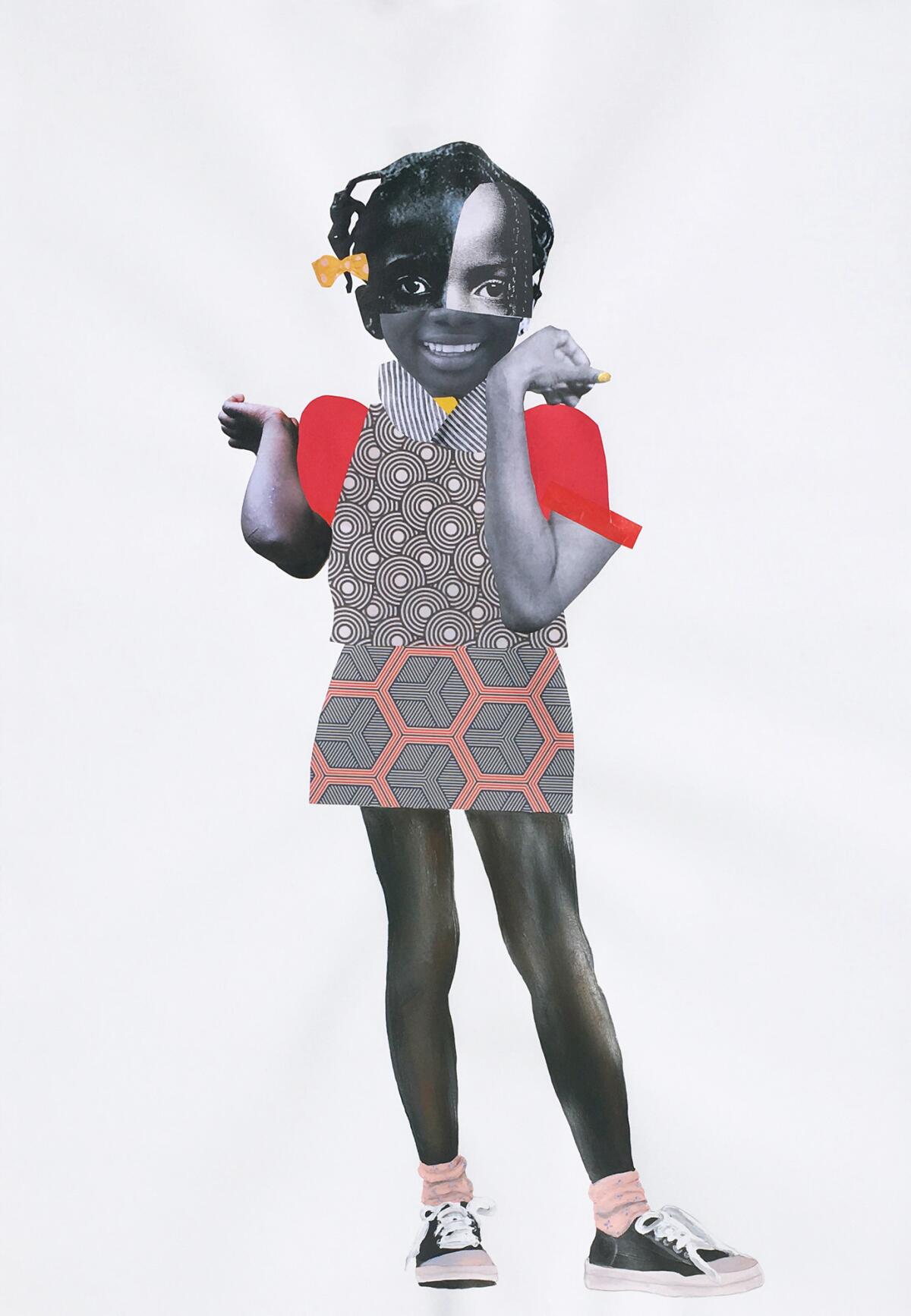Review: Deborah Roberts’ powerful statement of black female identity
- Share via
Deborah Roberts’ black girls are beautiful in their incongruity. The artist from Austin, Texas, has her first exhibition in L.A. at the Luis De Jesus gallery, and the collage and text works explore preteen awkwardness and the syncretic nature of black female identity. The images celebrate what it means to contain multitudes.
Their most obvious precedent is the collage work of Romare Bearden, who documented African American life in the 1960s in dynamic compositions that channeled the energy of music. Roberts’ portraits also feel musical, incorporating bold prints, bright colors and dramatic shifts in scale and perspective, but her eclecticism is much quieter. Her girls appear isolated on white grounds, the center of attention.

SIGN UP for the free Essential Arts & Culture newsletter »
Most of them gaze out at the viewer, although their visages are amalgams of several faces. In “Political Lamb #3,” the girl gazes in two directions: one eye trained on us, the other in profile. Two of her four arms hold a numbered card up to her chest, as in a mug shot. The gravity of this detail belies the perky bows in her braided hair.

The arms and hands of older women appear throughout. In “Here before, here after,” a sweet girl wearing a tiara has hands that are startlingly wrinkled and gnarled, suggesting wisdom beyond her years. The outstretched, outsized hand in “The step back” is also clearly a grown-up’s. The subject’s other hand is clad in a bright red boxing glove. These girls, incorporating the experience of their elders, are not to be messed with.

Eclecticism also appears in text works that are simply lists of names. Monikers like “Sharkesha,” “Raeschell” and “Shonique” fuse and twist various linguistic traditions in the same way as the collages. They are creative refusals to be contained by any one culture or category.
Roberts’ works capture perfectly what it feels like to have assumptions and expectations foisted upon you, to feel like a collection of pieces instead of a person. If you are lucky, you will also be buoyed and strengthened by the traces of those who came before, in the creation of someone unprecedented.
Luis De Jesus, 2685 S. La Cienega Blvd., L.A. Through June 16; closed Sundays and Mondays. (310) 838-6000, www.luisdejesus.com

See all of our latest arts news and reviews at latimes.com/arts.
MORE ART:
MOCA has lacked an effective director for nearly 20 years. It's time for change
Lauren Halsey takes a fantastic voyage in MOCA's 'we still here, there'
The biggest entertainment stories
Get our big stories about Hollywood, film, television, music, arts, culture and more right in your inbox as soon as they publish.
You may occasionally receive promotional content from the Los Angeles Times.







